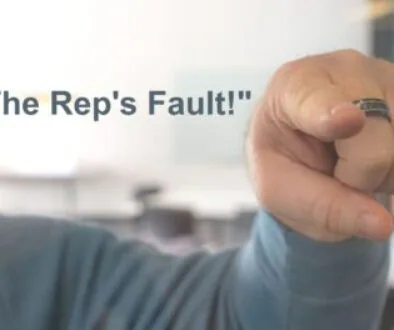Medical Sales: Helping your Health Care Customers to Stay on the Ethical Path
The vast majority of the medical sales professionals I encounter are ethical people. I can tell by how they talk and act, where they focus, and how the occasional moral conundrum affects their sales decisions and activities.
Ethical behavior has surfaced as a key issue in health care today, especially in terms of paying attention to what device and pharmaceutical manufacturers are doing to influence physician behavior. Sales representatives frequently complain that this oversight has placed them at a disadvantage, but that can only be true if your selling approach involves activities that are now verboten or frowned upon.
The obvious victim of ethical oversight is buying the customer a meal. When legions of pharma reps are closed out of physician practices because their only way in has been eliminated, that clearly substantiates the intent of the rules to prevent such practices. If Dr. Smith lets Mary into his office when she brings lunch, but doesn’t have time to see her otherwise, what does that say about the ethical intent of Dr. Smith?
I don’t think pharma reps are being unethical when they use a meal as means to get in front of a customer, but perhaps they are being complicit in enabling the customer’s unethical behavior. Part of the healthcare provider’s job is to avail himself or herself of any technologies or products that improve the patient’s condition. When healthcare providers allow access only when they receive a perk such as a meal or other amenity, is this ethical? If you believe not, then you should feel good about not contributing to that behavior.
As a medical sales professional, your job is to convince the customer that your product, your company, your service, and you are there to improve the patient’s condition in tangible ways. When you do this, you are facilitating and driving ethical behavior in your customers. It’s easy to shrug one’s shoulders and write off a customer’s unethical approach to doing business as the customer’s will and not yours. The fear of losing the sale can be overwhelming and it can cloud your own ethical thinking such that you rationalize that it’s out of your control.
Ethical behavior in medical sales goes beyond what you initiate or offer. When you cave in to a customer’s less than ethical demands, it’s no different than if you initiated it yourself. You can help the customer to do the right thing by focusing on the patient. Any value proposition you offer must overshadow the insignificance of a free meal or similar.
You know that icky feeling you get when you agree to do something that doesn’t feel quite right? That’s telling you that what you’re doing isn’t best for you, nor is it best for the customer and the patient. Don’t justify unethical behavior by thinking, “If she doesn’t buy from me this way, she’ll buy from another rep, so it may as well be me.” Don’t believe it. Instead, do the right thing and help your customer to do the right thing too. Sell so that you keep your customers focused on the only thing that should matter: Doing what’s right for the patient.


